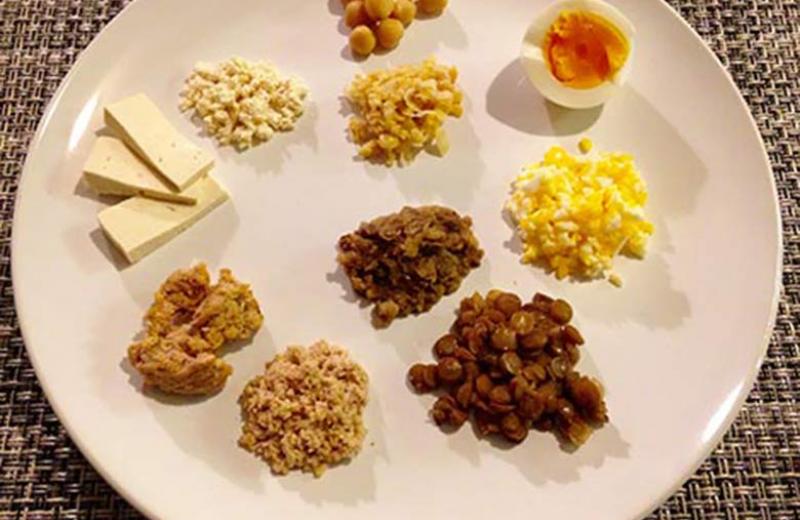Feeding your baby solid foods
At last, this exciting time has come: your baby is nearing six months old and can start to eat solid foods! Their tiny digestive system is now developed enough to handle many of the foods you and your family enjoy! Hooray!
…Now what?!
Giving your baby solid foods for the first time can be both exciting and intimidating. By six months, your baby is ready to learn to eat foods with different flavours and textures. He or she needs more nutrients than breast milk or formula can provide. Iron is especially important because your baby only has enough at birth to provide him or her until around six months. For this reason, babies' first foods should be those rich in iron to ensure they have enough of this valuable nutrient for proper growth and development. Some examples include:
- Deboned and flaked fish
- Iron-fortified infant cereal
- Lumpy-mashed beans, legumes and lentils
- Soft, well-cooked meats and poultry (beef, moose, elk, pork, chicken, turkey, lamb)
- Tender cooked eggs and tofu
Meats and poultry can be boiled or poached, and should be ground, minced or mashed. Fish can be poached or baked after removing the skin and bones. Well-cooked beans, lentils, and hard-boiled eggs can be mashed with a fork or potato masher. Health Link BC has some great recipes for your 6-9 month old baby.
It's important to make sure your little one is being provided with a variety of soft textures and finger foods. Progressing quickly from puree to soft and lumpy textured foods will encourage your baby to try and enjoy a variety of foods as they get older. Similarly, introducing finger foods early helps your baby get used to different food textures, improves coordination, and encourages self-feeding.
When your baby is eating iron-rich foods two or more times per day, start to offer other foods such as cooked vegetables, soft or cooked fruit, yogurt, pasteurized cheeses and cooked pasta or rice. If you would like to introduce whole cow's milk, do so when your baby is 9-12 months old and eating a variety of iron-rich foods. This will ensure their digestive system is developed enough to digest cow's milk and they will not turn down iron-rich foods due to filling up on milk.
Make mealtimes fun!
If he or she is showing interest in feeding him- or herself, let your baby eat with their hands, explore their food and get messy. Allow your little one to eat as much or as little as they want. They will learn to follow their hunger and fullness cues, which will help them build lifelong eating skills and think about food in a positive way.
You can find more information about introducing solid foods and iron-rich first foods from the links below or by contacting Health Link BC dietitians via email or by dialing 8-1-1.














Comments